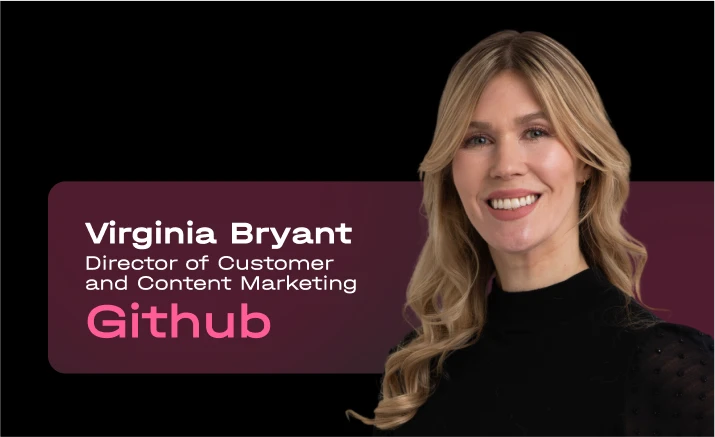Felicia Guity is that rare gem in the macho, WASP-dominated realm of technology: a black woman who has reached the highest peaks of corporate America. As Microsoft’s first black female promoted to General Manager, she has broken through several glass ceilings with her passion, talent, and confidence.
Her knowledge of the tech sector is also unique, acquired through a career that spans three decades and includes stints at Google (as Chief Operations & Executive Strategist), Citrix and Amazon. A natural-born mentor, she wants to share her experience and wisdom on how to battle prejudices and micro-aggressions with a new generation of leaders.
In the following Q&A, Guity explains how her own understanding of leadership has evolved over time, what corporations need to change to accommodate aspiring leaders from the black community and beyond, and how AI will help tackle bias in recruitment.
How has your leadership mindset evolved over time?
I have learned that there's no one way to do things. Leadership is about adjusting to cultural norms and industry changes. People think that a leader “does this”. But it’s more about the ability to adjust to your environment, and all environments are different.
There's no one way. You say, “I want to lead,” but what does that mean? You want to build a culture where collaboration but also meritocracy is highly valued. How do you navigate that while being authentic to yourself?
So, my thinking has evolved from believing that a leader does one thing and tells people what to do; it’s more about how and why they do it. Sometimes they still do that, but in the context of what's going on internally and externally. Context is very important.
When you have to launch something new, say a strategy or a product, how do you help your team embrace it?
I encourage the creation of a narrative around it. Why this change? Why not? What if? These three things help people understand why they are doing things. Sometimes leadership comes down to “This is a mandate” and people respond: “Why? What I'm currently doing works.”
So why are you doing something? Why not do something different? And what if this doesn't work? People always have those questions. First you create the narrative about the change and its impact, and then you bring them along on the journey.
I learned this early in my career. If you can't bring them along, you'll face significant barriers. And bringing them along means talking about milestones.
A milestone could be that in three months you’ll revisit this initiative, talk about how it’s going and what you have learned. Possibly make corrections. So, you don’t tell people what to do without any ability for them to adjust and have input.
Everybody can have an opinion, but everybody doesn't necessarily get a vote. You have to be clear about what the voting input looks like. Some things are not negotiable, and you should tell people upfront. Financial targets, expenses and costs are not negotiable. But what is negotiable often includes things that impact them.
So between a top-down approach to leadership and a more inclusive one, I guess you prefer the latter?
Yes, because it's the “how” that matters. There’s what you do, and there's how you do it. When leaders talk about what you do, that's leading from the front. How you do it is leading from behind.
Most things in my career that have been more successful than I could have ever imagined came from someone who worked for me. They said, “What about this” and I hadn't thought about that. My context is a different place from that of another person. They see things I don’t see.
Leading from behind is the “how”. The “how” should always be up for influence, up for input. But the “what” has to be done. We have to get here. So how do we get there by being more collaborative?
Isn't that more difficult when you work with people from different backgrounds, for example from different generations?
That’s why you have to create the narrative. It has to be tailored to your audience. You can't just make one blanket narrative.
I remember the narrative we created when we launched Bing at Microsoft. I was part of the leadership team thinking about how we would bring Bing to the market. I said that Google has become synonymous with search. When people want to say “search” something, they say “Google it”.
Are you trying to do the same? That probably won’t happen. They have captured that market.
So, we came up with a narrative. We weren't about replacing Google; we were about a different option. Google gives you long-term knowledge, but Bing real time search, because the results are more recent. So, recency versus depth.
It was never intended to displace Google, just to give people options. We had to come up with that narrative because beating Google wasn’t realistic. It still isn't.
Has it become easier for a black person to reach the top ranks of large corporations like Google or Microsoft since you started your career?
It’s not easier and that's unfortunate. I hope that in my lifetime it becomes easier. The problem is solidarity. People who have positions of authority have worked together; they have more similarities. Their world is built around majorities, not minorities.
When you work in the area of solidarity, when you understand each other, you understand the norms. Take the differences between black females and white females. White men in positions of authority understand white women. They have sisters, daughters, aunts.
They don't understand me, because they have no frame of reference. Everything they learn about me has to be what I bestowed on them through our interaction or things they picked up online.
But I don't know either what their frame of reference is for working with somebody like me. It could have been positive or negative. They can't relate to me in a way that helps me, unless I create that narrative or experience for them.
You want to be relatable. You want to give them something they can relate to. So, I try to find what makes me relatable.
White women have the same problem that black women have. We don't rise to the top because white men can relate to white females, but they also relate to people who are less than them, like their mothers. So, they bring them only so far.
Black females, they give us a chance and then they stop and figure: “Can I push them even further?” And then black women who get close to senior roles constantly experience micro-invalidations. They are trying to validate that you are okay, so micro-invalidations are extreme.
I can't tell you how often I am asked questions. Why would you question me instead of this guy? I'm a PhD! You get off-the-cuff remarks. It can get hard, but it's all about you.
You have to find somebody who's invested in your talent, not how you look. That's a hit-or-miss situation. I've been fortunate. I worked with white men who initially may not have found in me the value I wanted them to, but through working with me could appreciate the unique contribution I could make.
What changes are needed in corporate culture for black people to have the same opportunities other people have?
They need sponsorship and advocacy on a bigger scale. You can't have two VPs in a company of 150 leaders. Microsoft has 400 leaders, and I was one of them. They only had 20 black leaders, maybe five women and fifteen men.
You have to invest in it. I was lucky to have a Hispanic mentor who wanted to help me. You can’t have just minorities helping minorities, you need everybody helping minorities.
Microsoft did that. For a couple of years, they put it in the bonus structure of executives that you had to promote sponsorship and advocacy. But that didn't last long.
I reached the higher ranks, the first black female to be promoted to General Manager at Microsoft, because white men took me into meetings and let me shadow. Some people asked why I was there, and my mentor explained that I was joining him to observe his meetings, learn and build my executive presence.
Access and visibility are the two biggest barriers for any minority in corporations. We usually don't get above the mid-level manager level, because our ideas aren’t even taken and amplified, or they are pushed to smaller projects.
The British diversity guru Jenny Garrett recently told us that equity leads to better financial performance. Do you agree?
Yes. A University of Michigan study found that you have better financial results when you are more inclusive. Inclusion comes in when taking other people’s ideas and expanding on them.
I can't tell you how many times I have identified a business problem, come up with a solution and had to fight to get it acknowledged. Once I established credibility, I could get it done. But initially it was difficult.
It’s a constant fight, because there are people who are not in an ivory tower bubble and see things a leader doesn’t necessarily see. Like Gen Z today.
When you're a minority leader, is it more difficult to say “no” to top management?
Sometimes it is, sometimes it isn't. Most minorities experience imposter syndrome. You get those micro-invalidations so often, that you think you may not be good enough, that you are afraid to say “I don't agree.”
Fortunately, I didn't suffer from that, because I did not place my sole value on my job. Everybody relies on what they do as being who they are. That causes a problem.
Financial stability is an issue too. Recently I had a one-on-one meeting with a student, and she was crying during the whole meeting. She was being treated poorly in her job, but she couldn't leave. She's a single mother, she needed the money.
So sometimes you have to balance your short-term needs with your long-term objectives. People put up with terrible situations where they have to do what they are told.
Fortunately, I haven’t been in that situation. I was willing to lean in and say that this doesn't follow my moral compass, or this is not my frame of reference.
When you suffer from imposter syndrome, how do you find the confidence to say no?
Well, that's where having a mentor or coach helps. They can walk you through your fears.
That student of mine, her fear was financial. She said that her stomach would hurt when she was thinking about going to work. So, I asked her “What's your plan?” If it’s about taking care of your daughter, what’s your plan?
I have been there too. You have to address the fear holding you to this dysfunctional dynamic, the imposter syndrome. When you have a plan, that tends to go away.
If your fear is financial, think how you can meet your financial obligations in other ways.
I was going through a divorce, and I was worried about my job at Microsoft. What if I got laid off? I figured that I could send my kids to my mother and leave my house. If you have a plan, you tend not to get the imposter syndrome. You are not fearful, so you move forward.
Nowadays, more people work multiple jobs. Is the reason the fear of getting laid off that you just described?
When you have financial issues, it's a way to empower yourself.
Financial dependency on one company that is not dependent on you is crazy. What can you do if you lose your job? Amazon laid off 18,000 people last year.
If you're the primary breadwinner, what are your financial options? Multiple financial streams give you financial stability. It empowers you to do other things.
A recent WEF report predicted that by 2027 half of the world's professionals will have to reskill. What skills would you advise people to develop?
Many jobs will be displaced because of AI and automation. In the US, you go to order a burger and you don't need people taking your order, you order a burger at the kiosk, and you pick it up. That has minimised that transaction.
However, marketing skills can't necessarily be replaced, just augmented. Programming and project management skills will always be needed. And then AI technology like security, engineering skills, all technical skills will help. For example, UX designers will still be needed.


Бажаєте отримувати дайджест статей?












